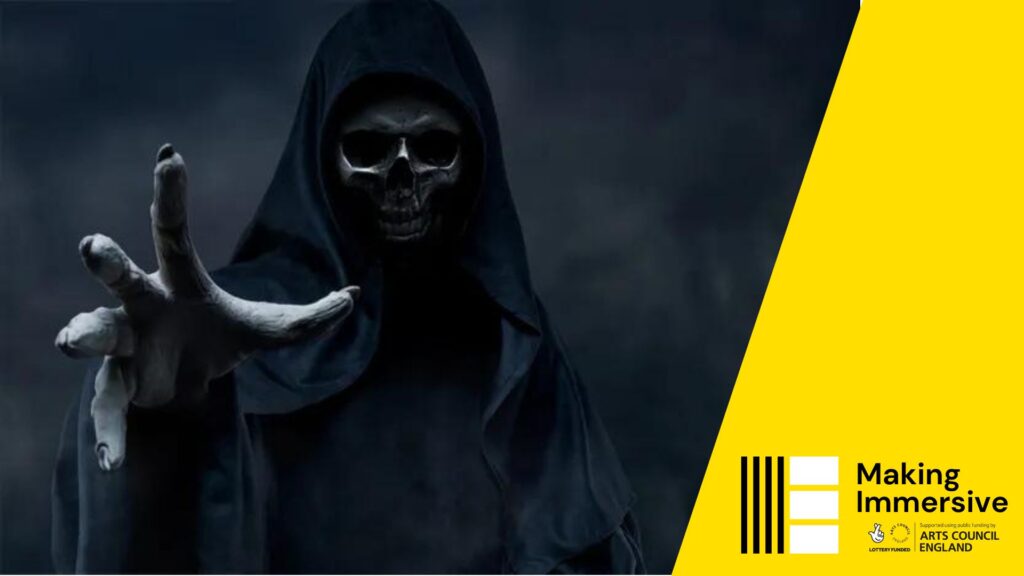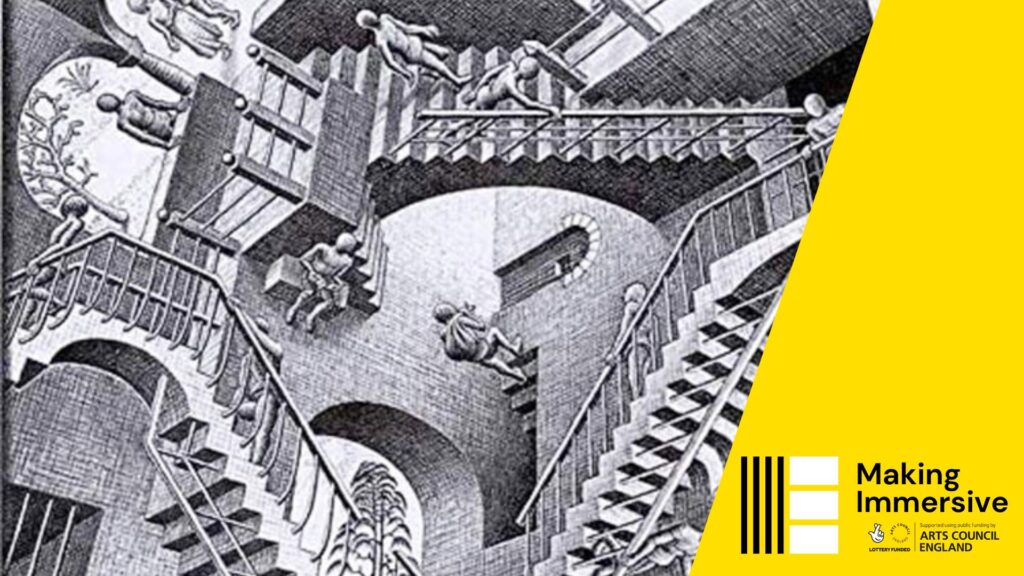What is an escape room?
An escape room is an interactive group challenge in which all players are locked in a room, or multiple rooms, and need to work together to get out within a set amount of time.
While virtual escape rooms do exist, live immersive escape rooms are in-person experiences, and can be found in towns and cities around the UK. Experiences usually last anywhere from 30-90 minutes with an average time of 60 minutes, and groups of anywhere from two to 10 or more people can take part at once.
They are games of logic, memory and teamwork in which players must solve a series of puzzles using the tools and clues around them. At the same time, they create excitement by triggering participants’ imaginations and share tools with other genres, including immersive theatre and live-action role play.
Where did escape rooms come from?
The origins of escape rooms actually lie in video games, and are a rare example of a form of entertainment which began as a digital one before it became physical.
Takao Kato, inspired by the desire for real-life adventures and the popularity of ‘escape the room’ video games, created the first real-life escape game in 2007 in Kyoto, Japan.
Writing on his website, he says: “I’m often asked “How did you come up with the idea of the REAL ESCAPE GAME?” I can’t say anything really cool. I just answer like this: ‘I was thinking about doing some kind of new event, and the girl sitting next to me said she was hooked on online escape games, so I just tried to make one’. And that’s the truth. This kind of event that brings people to participate together has attracted a huge number of people, created excitement everywhere, and become very popular very quickly. When we held the first event in Kyoto, Japan, all we had was a small ad in a classifieds paper. In no time, all tickets were sold out.”
What makes escape rooms immersive?
Storyline
Escape rooms are usually based around a specific theme, with the environment, storyline and challenges all presented within the context of the theme. A key part of this immersive experience is the storyline presented to players as they enter. They may be given roles or characters to play, and given some background information to explain why they’re now trapped in this place, and the consequences if they don’t escape.
Physical environment
Adding to the sense of immersion is the thematic design of the environment, which helps players to feel as though they’re really inside the story. Props, decorations, costumes, sound effects and even live actors combine to make the game feel as real as possible.
In their new reality, players might suddenly find themselves on an alien spaceship, a zombie outbreak, a haunted house, a prison, a jungle, or any other exciting and threatening imaginary predicament.
Interactivity
Escape rooms feature a variety of interactive elements, including locks, hidden compartments, electronic gadgets, and mechanical contraptions. These tangible objects make the experience more hands-on and engaging, allowing players to interact directly with the game environment. These puzzles can vary widely in complexity and difficulty, ranging from simple riddles to complex multi-step problems. The satisfaction of overcoming obstacles and making progress towards the goal keeps players fully engaged throughout the experience.
How are escape rooms similar to, or different from, other immersive experiences?
Escape rooms are similar to LARPs in that they remove the concept of an ‘audience’ and instead the participants become ‘players’ taking on narratively embedded games and puzzles. LARPs tend to have more freedom of play than escape rooms, which have a limited path players can take through the experience. They are like LARPs, too, in their design of a physical space to turn it into a different world – something they share with immersive and interactive theatre, and themed attractions.
Examples of escape rooms
Escape rooms can be found across the UK, not only in larger cities but smaller towns too. Their growing popularity and spread is partly due to their simplicity and replicability of format, plus their accessibility to audiences of varying ages and abilities.
Escape Reality is just one example of a company with a chain of venues, and has locations in the UK as well as Australia. They list jungle, Alcatraz and vampire themes among their escape room theme options and their offer is consistent across all their venues.
There are also plenty of one-off or independent escape room companies in the UK which offer experiences unique to one location. For example, Riddlr are based in Bristol, and design and build all their own puzzles and games.
London-based independent company clueQuest have four unique missions in which players join Mr Q’s spy agency to defeat their nemesis Professor BlackSheep. As well as the traditional escape room set-up, clueQuest also has outdoor missions players can complete in the surrounding area using their phones.
Escape Rooms Durham is another independent UK escape room and makes use of a 600-year-old castle as a venue. Their staff come from a variety of professional backgrounds linked to escape rooms, including gaming and immersive theatre.





